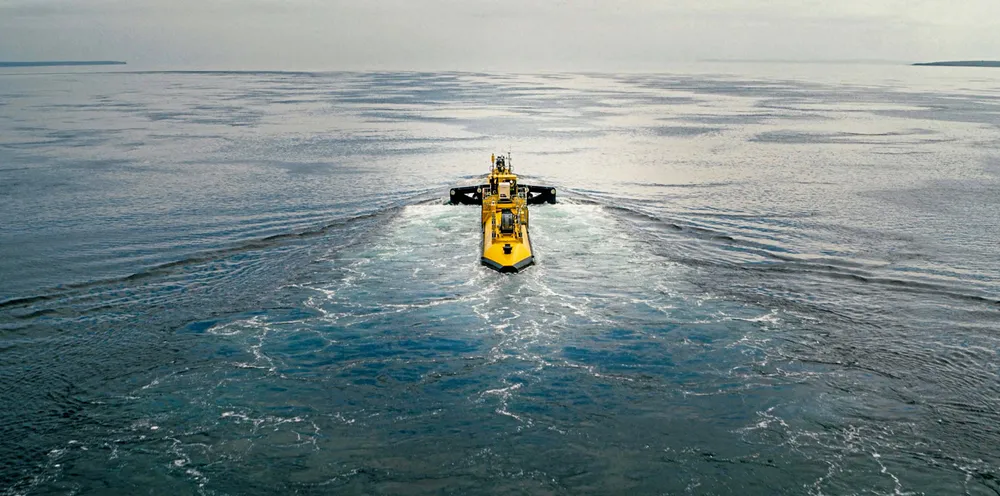'Major milestone': First power flows from world's mightiest tidal turbine
Orbital Marine Power's O2 device producing onto UK grid from site off Scotland's Orkney Islands, with plans to commercialise technology via multi-unit arrays

Orbital Marine Power's O2 device producing onto UK grid from site off Scotland's Orkney Islands, with plans to commercialise technology via multi-unit arrays
